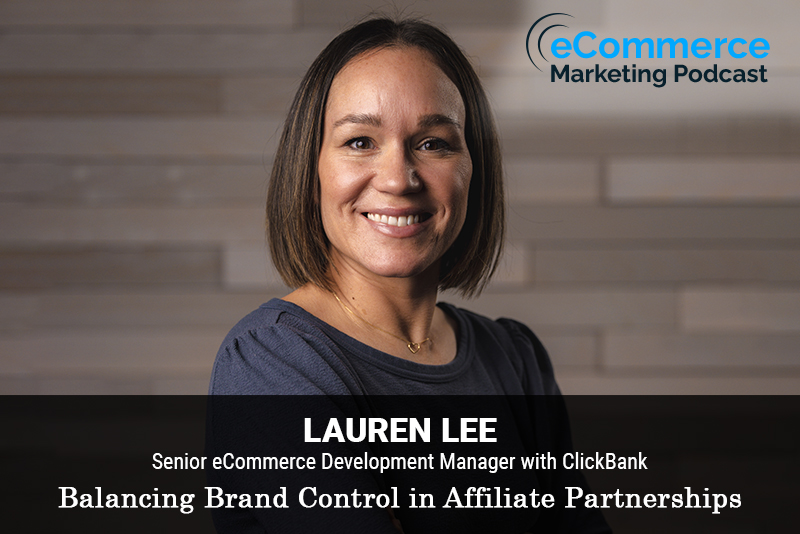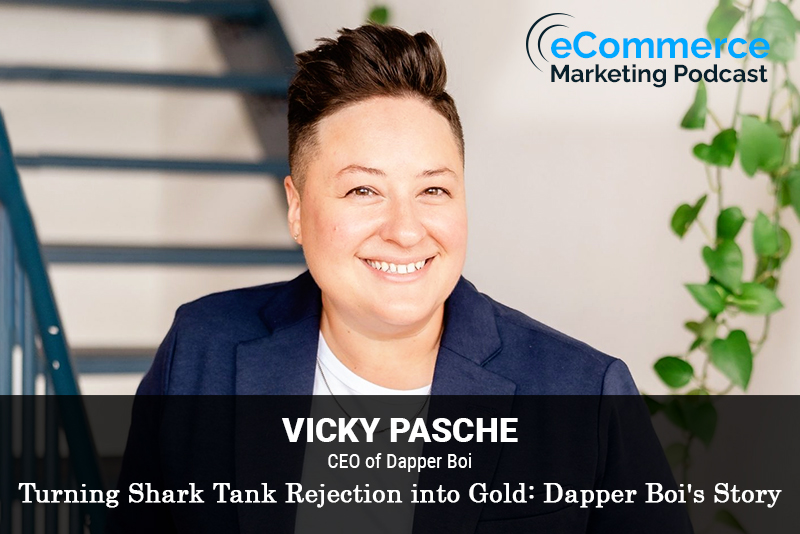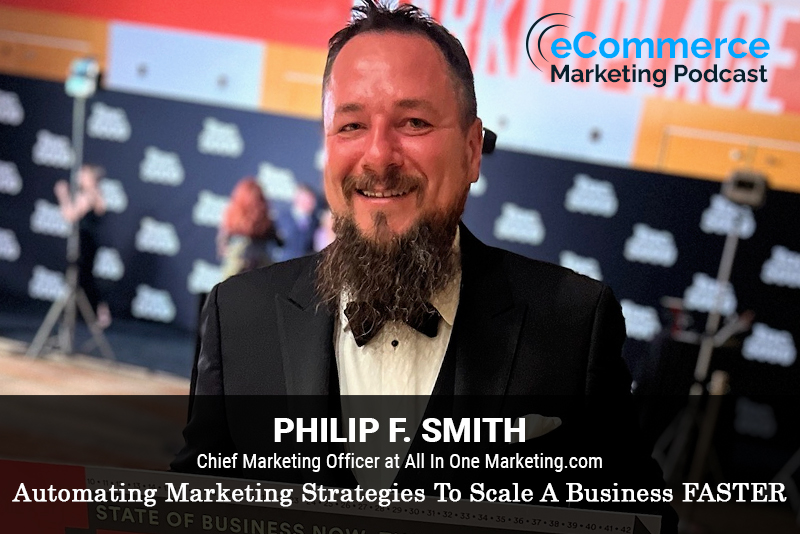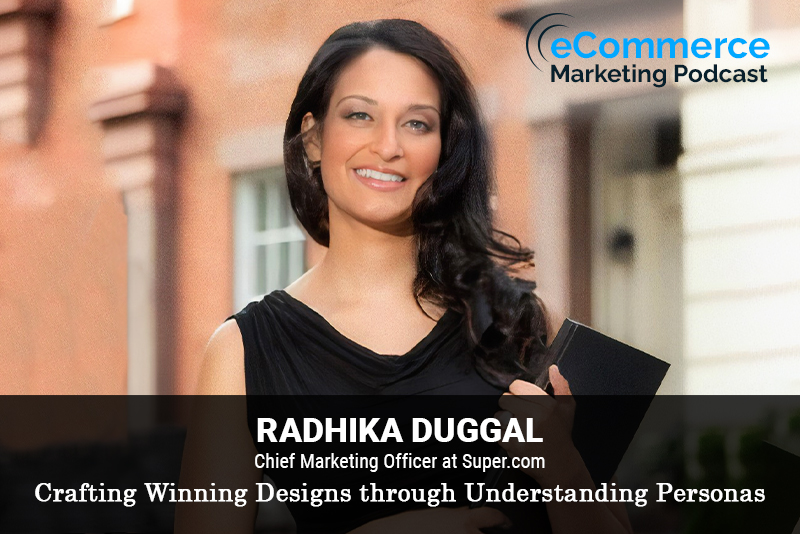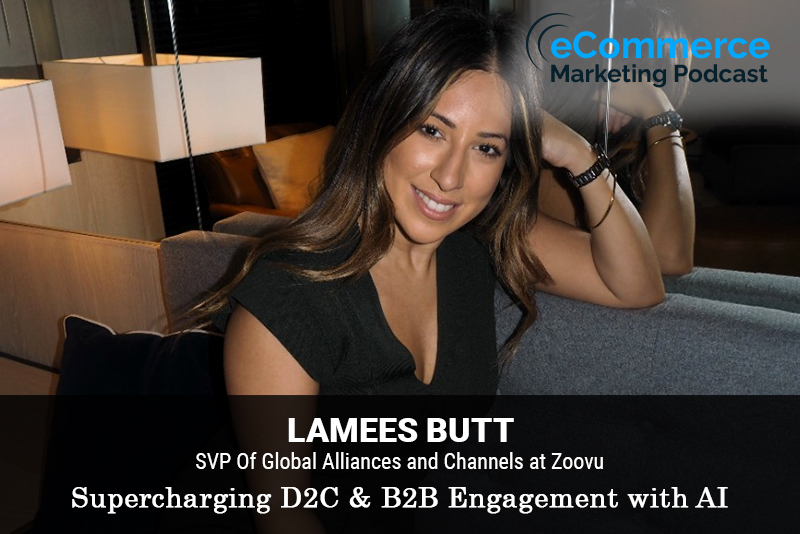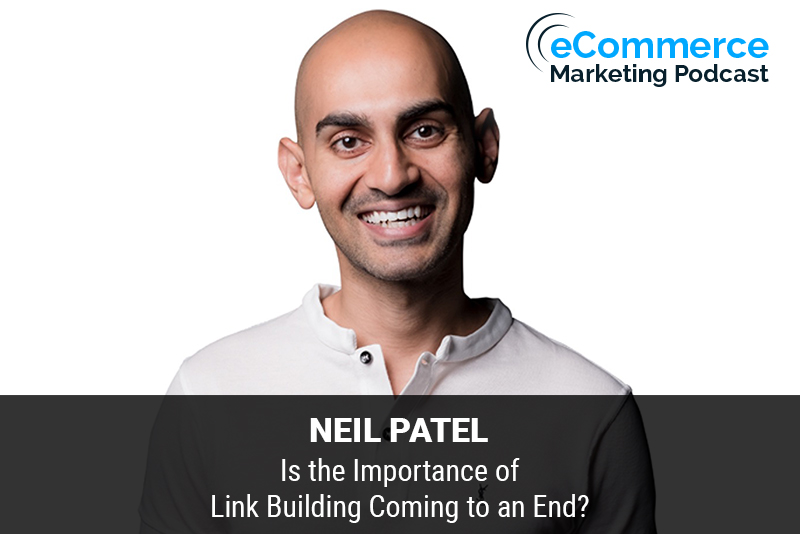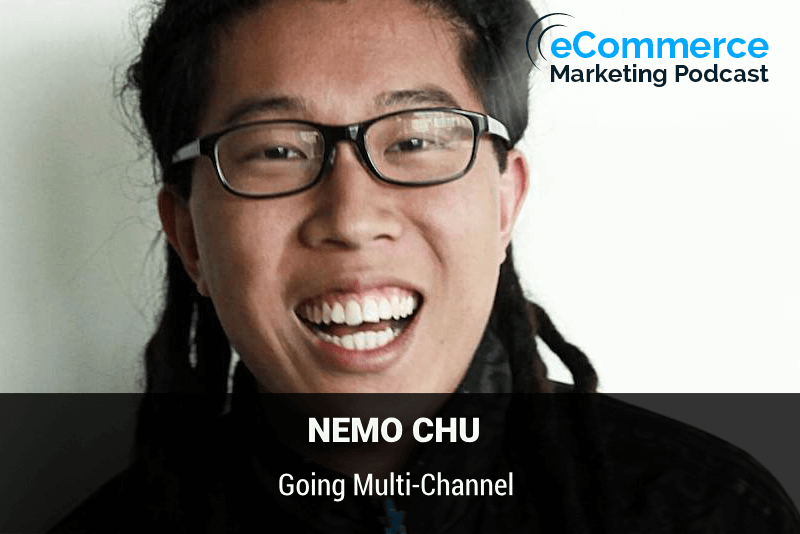
The eCommerce Marketing Podcast walks you through everything that goes into ecommerce marketing — from inbound marketing to paid advertising to conversions. Learn the strategies top marketing experts use to grow their businesses.
Lauren Lee is ClickBank’s Ecom Expert who works with e-commerce brands to unlock new sales channels with affiliates. She believes there is always a solution to scale brands, and you can always find a way to exceed goals. Lauren has partnered with top Fortune 100 companies like Walmart, Amazon, and Apple leading their affiliate marketing strategies and offer campaigns, and is helping brands like yours craft scaled affiliate channels. You can find her hanging with her husband and daughter when she isn’t supporting clients, traveling the PNW, and assisting in Buddhist meditation teacher training.
In this episode, you will learn
What are the benefits of using affiliates to market your e-commerce brand
How do you find and select the right affiliates for your brand
How can you ensure that your brand is represented in a positive light by affiliates
What are some common mistakes that e-commerce brands make when working with affiliates?
Case studies of brands that have achieved tremendous success working with affiliates and maintaining control of their brand
For show transcript and past guests, please visit https://www.ecommercemarketingpodcast.com
Or on YouTube at:
https://www.youtube.com/channel/UC3PgT0NOGzpdPGQtBK0XLIQ
Follow Arlen:
Twitter: https://twitter.com/askarlen
Facebook: https://www.facebook.com/arlen.robinson.7
Instagram: https://www.instagram.com/arlenyohance/
LinkedIn: https://www.linkedin.com/in/arlenrobinson/
Past guests on the ecommerce marketing podcast include Neil Patel, Nemo Chu, Luke Lintz, Luke Carthy, Amber Armstrong, Kris Ruby and many more.
Thanks for listening. Be sure to subscribe and leave a review.

Title: Leveraging Affiliates to Maintain Control of Your Brand featuring Lauren Lee
Guest: Lauren Lee, Senior eCommerce Development Manager with ClickBank
Host: Arlen Robinson
In this episode of the eCommerce Marketing Podcast, host Arlen Robinson interviews Lauren Lee, an e-commerce expert at ClickBank. Lauren shares her insights on leveraging affiliates to expand e-commerce brands while maintaining control over brand representation.
Key Takeaways:
- [3:00] Introduction to Lauren Lee:
- Lauren’s background in fashion business and e-commerce.
- Her experience with top brands like Walmart, Amazon, and Apple.
- Transition to ClickBank to help brands scale through affiliate marketing.
- [7:00] Benefits of Affiliate Marketing:
- Low risk and cost-effective.
- Unlocks additional sales channels.
- Performance-based model ensures affiliates are incentivized to drive sales.
- [12:00] Types of Affiliates:
- Influencers: Drive warm traffic through social platforms.
- Publishers: Digital content creators like Forbes and Buzzfeed.
- Performance Affiliates: Media buyers who drive cold traffic.
- Email List Managers: Manage and leverage extensive email lists.
- [19:00] Selecting the Right Affiliates:
- Conduct due diligence and research.
- Utilize networks and platforms to pre-vet affiliates.
- Maintain agency and control over affiliate selection.
- [23:00] Maintaining Brand Control:
- Set clear guidelines and expectations for affiliates.
- Use affiliate tool pages to provide assets and copy.
- Regularly monitor affiliate performance and content.
- [29:00] Learning from Mistakes:
- Ensure a dedicated point person manages the affiliate program.
- Be patient and give the program time to scale.
- Cultivate and nurture relationships with affiliates.
- [34:00] Success Story:
- Lululemon’s use of publisher affiliates to drive customer acquisition.
- Leveraging discounts and overstock to maintain brand ethos and drive sales.
Guest Info:
- Lauren Lee
- Senior eCommerce Development Manager with ClickBank
- LinkedIn: Lauren Lee
- Website: ClickBank

